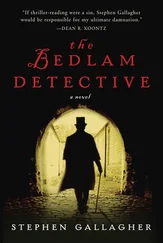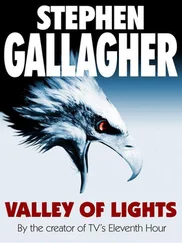The second round regressed to the mean. I hit a doe early when it dashed in front of a buck drinking from a snowy stream. Fat Mukhtar proceeded to hit all six bucks in the round, culminating with a head shot in the far distance. He seized the lead, laughing deeply, jowl wobbling.
The fucker had rope-a-doped me, I thought, something the third round confirmed when he killed five bucks to my one. He knew the board like it was kin, displaying foreknowledge of open shots and an accuracy he’d concealed at first. He’d wanted to watch me shoot to learn my strengths and weaknesses. Whereas I was reacting to the game, he anticipated it. There was a counterinsurgency lesson in this somewhere, but I had neither the time nor the patience to figure it out. The war didn’t matter anymore. Wiping the grin off the mukhtar ’s fat face did.
Down a breezy 1,100 points, I had two rounds to redeem myself. I knew I couldn’t win fairly, he was too good, too aware of what was to come. While the game loaded the next board, I asked myself what would vex him the most.
I smirked at my own genius.
The screen instructed us to GET READY. I turned to Fat Mukhtar and smacked him on the ass, shouting incoherently and cupping a saggy cheek a beat longer than necessary.
He cursed and dropped his gun. I had free rein of the board, a frost-ridden forest where I had to contend with trees and does alike. By the time the mukhtar had regained his weapon, I was pumping the kill shot into my sixth hide. I was now 120 points away from the lead.
Fat Mukhtar’s face quivered with anger, and he started to walk into me, belly first, until I raised a peace sign and pointed to the screen. He rearranged the green shotgun under his armpit in a salvo of Arabic vulgarities. As we waited for the sixth round, blocky letters of GET READY formed on the screen. We crouched in the wait, his feet parallel like he was at the O.K. Corral, mine staggered and clenched as I’d been taught in training.
The board began. A doe stood alone in a field, eating grass.
“Sheika,” Fat Mukhtar said. Then he chanted. “Ra-na. Sheik-a. Ra-na.”
He knew. Somehow, some way, he knew. It didn’t bother me, though, or rattle me. It infuriated me, and as soon as the first antler pierced the edge of the screen, I started pumping out shots with abandon. “ Mukhtar , ali baba!” I yelled as the first buck went down in a glow of orange, awarding me the kill. “ Mukhtar!” In the back, under a large pine: a twinkle of dark brown. I deemed it worth the risk, and got bonus points for the distance. “Azhar!” A buck bounded down a hillside in the center of the screen, and we saw it in chorus. He shot it in the neck, and it didn’t go down. I shot it in the chest, and it did. “Motherfucking Cleric!”
A quick glance to the top of the screen showed that I’d pulled ahead by 350 points. One last buck zigzagged across the screen, a muscular devil that dodged bullets and does with aplomb. He needed to kill it to regain the lead. I needed to kill it to keep that from happening. Our toy shotguns crossed as the buck reached the center of the screen. It wouldn’t go down, as if our bullets were passing through a phantom. Fat Mukhtar howled murder, so I did, too. The screen turned red.
The ghost buck had slipped away, or so it appeared. We’d never know, because we’d each shot a doe, ending the round and ending the game. No one received points for the last buck.
I’d won.
He threw down his gun and then pointed to the screen, asking for a rematch. I shook my head. It was time for a victorious retreat.
I picked up my real rifle. “You say Rana,” I said, jolted blood still pumping. “I say Haitham. I say Fat Mukhtar is ali baba. I say Fat Mukhtar kill — Fat Mukhtar keel Haitham.”
He inhaled sharply, then bent over to pick up the toy gun he’d tossed. Standing back up, he ran a hand through his black thatch of curls and narrowed his eyes. “No,” he said, pointing at me. “Haitham mine.”
We’d been through a lot together, the mukhtar and me. And kept even more from each other. I was thinking about how easy it would be to shoot him in his own den when someone banged on the door twice. There was a blast of raw light.
“There you are.” It was Captain Vrettos. “Meeting’s over. Time to roll.”
I followed my commander outside without a word.
After the war found him and turned him into a martyr, I often wondered what thoughts flitted through Fat Mukhtar’s mind as we walked out of his courtyard that day. There must’ve been many.
In the Stryker, Captain Vrettos said that we’d relented and agreed to pay fasil for all the mosque dead but Azhar. Lose a battle to win the war, he said.
“That Yousef guy is something else,” he continued. “Wish he was more active in the community. It would have been good to work with a man like that.”
The outpost was a zoo the next morning. Another platoon was driving out the front gate to deliver the fasil payments as the logisticians arrived with a delivery — the last shipment of foam mattresses from a contractor leaving Kuwait. First Sergeant said we didn’t need them, but could hand them out to locals. They also had the infamous satellite dish. Meanwhile, a group of Rangers arrived unannounced, a captain built like a viking needing to talk to someone about “high-value targets.” The rest of the Rangers remained in their Humvees, eyeballing our soldiers with carefully cultivated disdain.
On the outpost stairs, Captain Vrettos admired the pistol holstered on my chest plate — Saif’s olive Glock — and asked what I had planned for the day.
“I could meet with the Rangers if you want,” I said. “But I have a meeting slated with that source from out west. Going to take us to a graveyard in town. Something about the real Cleric.”
“No, I’ll handle the Rangers.” The commander’s mind seemed elsewhere, perhaps at Camp Independence, where the Big Man had said he had no second chances left — it was peace or bust. “Stick with your patrol. Just get some good intel, please. We’ve got to figure this out.”
If I felt any guilt about misleading my commander, the thought of spending time with Rana quickly displaced it. I’d called the previous night to thank her for saving lives — our lives. She again refused the offer of cash, but said there was another way I could repay her.
“Anything,” I said.
“My family is buried together, in south Ashuriyah,” she said. “I haven’t visited them in years. Perhaps you could take us.”
“Of course,” I said. “But this is a small thing. We’re still not even.”
I didn’t let her hang up until she agreed with that.
A daisy chain of sweaty, grunting soldiers led down to the foyer, with a variety of items being passed up the stairs from large cargo trucks outside, crates of Rip It and jugs of bleach and Memory Foam pillows that’d come with the mattresses. In a corner of the first floor stood Alia, mopping the red-and-white tiles with indifference. She wore a gray abaya and leopard-pattern head scarf, and her attention was focused across the octagonal foyer. She was watching Chambers, still in his body armor, yelling at soldiers to daisy-chain faster. I watched her watch him while the same section of tiles got mopped again and again. Then, as if her Spidey sense had tingled, she turned with her mop into the corner.
I walked over to Chambers and placed a hand on his shoulder. We hadn’t spoken since the roof.
He looked up with a jerk. “Lieutenant,” he said. “What’s the patrol today?”
I tried to visualize him the way Rana remembered him from 2006: eager, brash, more peacock-like than Machiavellian. It didn’t quite fit what I saw in front of me.
Читать дальше




![Ally Carter - [Gallagher Girls 02 ] - Cross My Heart & Hope To Spy](/books/262178/ally-carter-gallagher-girls-02-thumb.webp)
![Ally Carter - [Gallagher Girls 01] I'd Tell You I Love You But Then I'd Have to Kill You](/books/262179/ally-carter-gallagher-girls-01-i-d-tell-you-i-lo-thumb.webp)






